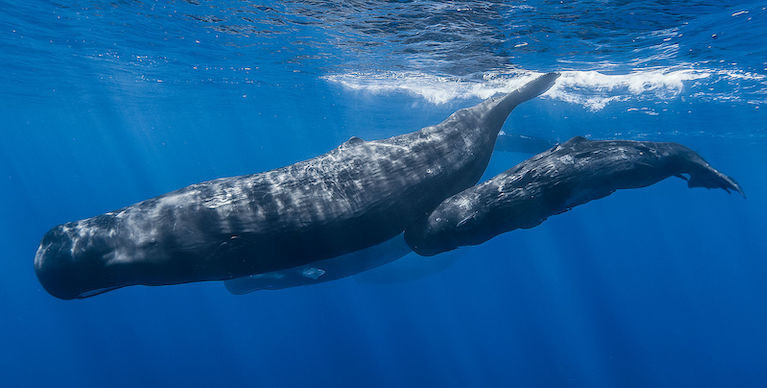Whales are known to be disturbed by the noise of ships and oil and gas drilling, but now a new study says that bottom trawling can also upset marine mammals.
As the Irish Independent reports today, scientists at NUI Galway’s (NUIG) Ryan Institute have found that the sound generated by trawling for fish around underwater canyons is amplified and may affect marine mammals’ ability to hunt and navigate.
The team used hydrophones to record the impact on the marine environment of trawlers in two surveys in the Irish Sea and Celtic Sea.
Ecologically sensitive areas of the oceans need stronger environmental protection from the wide variety of potential pollution sources, including ships, deep-sea mining and bottom trawling, the team suggests.
The scientists modelled how the noise generated by bottom trawling could travel through the water column, along the seabed, and through a 20km long submarine canyon in the Porcupine Basin off the south-west Irish coast.
They found the noise funnels through underwater canyons and into deeper waters, affecting marine mammals feeding and migrating.
They also discovered that “modelled trawler sound” generated on the seabed travels underwater more “efficiently” than sound generated at the surface by boats.
Eoghan Daly, a PhD researcher with NUIG’s Irish Centre for Research in Applied Geosciences (iCRAG), said that raised levels of marine noise can “interfere with a marine mammal’s ability to communicate, hunt and navigate using echolocation”
“Human-derived noise in the world’s oceans comes from many sources”, but “ bottom trawling’s impact has received “little attention to date”, he said.
“In an ocean already faced with plastic pollution and climate change, a better understanding of trawler noise pollution will highlight it as another human impact on the marine ecosystem,” Daly said.
The NUIG team’s findings have been published in the scientific journal, Marine Pollution Bulletin.
The team hopes their research will inform improved environmental regulations near key marine habitats, marine protected areas (MPAs) and any additional special areas of conservation in Irish waters.
Ireland has set a target of designating a total of 30% of its maritime area as MPAs by 2030.
“The research fills an important gap in marine noise pollution monitoring,” Dr Martin White of NUIG said.
“Areas such as the Porcupine Basin and the wider European continental margin are ecologically sensitive, and trawlers operating in this part of the Atlantic Ocean have more powerful engines and heavier gear,” he said.
“The enhanced currents and nutrient mixing in these parts of the ocean help create good conditions for cold-water coral mounds and for associated invertebrates, fish and mammals to thrive,” he noted.
Marine life should be protected from the wide variety of pollution sources, including ship noise, pile driving and from bottom trawling, as we now know,” he said.
Read The Irish Independent here
































































